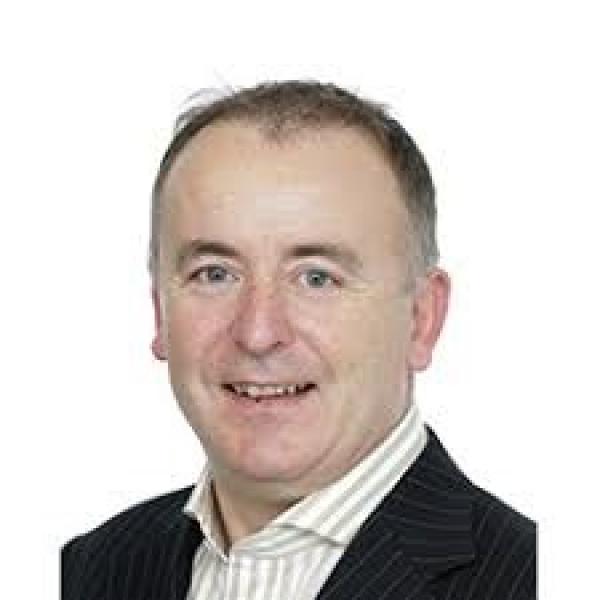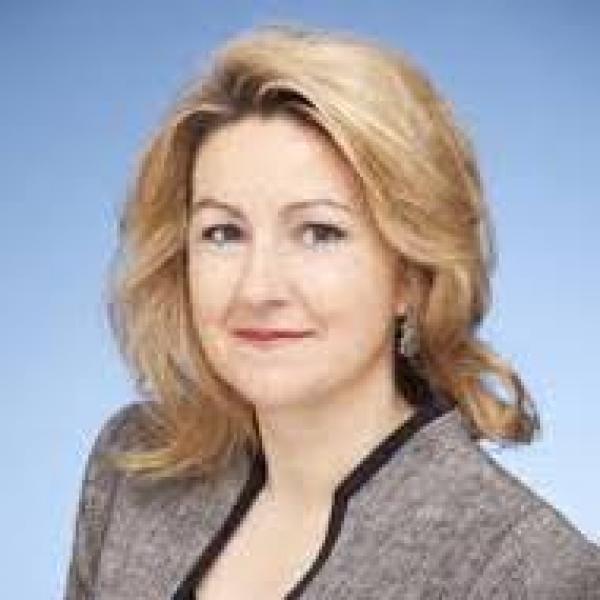Researchers in Focus: Prof Peter O'Gorman & Prof Cathy Kelly
With the launch of our Clinician Research Leadership grant call 2021, this month’s Researchers in Focus highlights two of our previous award recipients, Prof Peter O’Gorman, Director of Pathology and Consultant Haematologist and Prof Cathy Kelly, Consultant Medical Oncologist at the Mater Misericordiae University Hospital. They were the recipients of the Irish Cancer Society Clinician Research Leadership Award in 2017 and 2018 (respectively). Prof O’Gorman and Prof Kelly tell us how their awards have been of benefit to them and their vital work for those impacted by cancer.

Prof Peter O'Gorman:
"The protected time afforded by the Irish Cancer Society Clinician Researcher Leadership Award (2018-2020) enabled me to focus on several key areas. My research is focused on proteo-genomics aiming to identify new targets for the development of new drugs and predictive tests against multiple myeloma."
I am the Director of the Next Generation Sequencing (NGS) Laboratory at the Mater Hospital, which is the focal point of all genetic (germline) testing across multiple disciplines and which provides an excellent educational platform and a link between University College Dublin (UCD) and the Mater Hospital.
During this time, we repatriated testing for Sudden Cardiac Death from A Coruna, Spain. We are in the process of rolling out a national service. Our next focus is a cohort of 140 patients with inherited blindness. The NGS lab will allow UCD and the Mater to strengthen their national and international collaborations that are essential for patient-centric transformative treatments and will help bring the best standard of care to Irish patients.
- The Irish Cancer Society Clinician Researcher Leadership Award has enabled me to increase key collaborations nationally and internationally, successfully compete for research funding (recently awarded an HRB-HCRI grant), enhance the visibility and the profile of oncology research in Ireland and lead to future collaborations with pharmaceutical industries.
- Over the course of the award, my group published numerous manuscripts on multiple myeloma, while we also published clinical case series of patients who receive anti-myeloma therapies following genomic analysis.
- The Clinician Researcher Leadership Award gave me the opportunity to focus on my mentorship duties; two of my PhD students successfully defended their thesis and have now moved on to prestigious posts.
- Finally, I was able to increase my interactions with the pharmaceutical industry for the design of Investigator Initiated Trials; specifically I am the Irish principal investigator for the recent jointly funded Irish-US Phase 2 Isa-RVD trial for newly diagnosed myeloma.
Such activities, facilitated by the Clinician Researcher Leadership Award, enabled me to establish myself as a leader in the field of haematological oncology and in particular in multiple myeloma.

Prof Cathy Kelly:
"Receiving the Irish Cancer Society Clinician Research Leadership Award was hugely significant for me and I will be forever grateful for having received it. For the previous 10 years, my work was predominately clinical, treating all cancer types in the Mater and Cavan General hospital. Although I was involved in cancer research, it mostly happened in my spare time and at evenings, and invariably clinical demands encroached on it."
Receiving the award was like winning the lottery. It took about a year to find a locum to cover two of my clinical days but it was worth the wait. Having two days per week to focus on interesting research questions, to write and apply for grants, to form collaborative links with other research groups, to build our cancer trials unit was incredible. On a personal level, having a different focus for a few days during the week gave me a breather from the significant emotional and physical demands of oncology clinical practice.
- During the last two years, I have led the Ireland East Hospital Group Cancer Trials HRB Cluster Grant Application, which will hopefully secure funding for the next five years for trials infrastructure.
- I have established an exercise programme with Dr Noel Mc Caffrey for all breast cancer patients being treated in the Mater Hospital, which is going from strength to strength.
- With my surgical and pathology colleagues, we are building a research laboratory team to being translational breast cancer research and hope to appoint a Post-Doctoral Scientist shortly.
- I have had the time to develop cancer trials protocols and work on them with international steering committees.
- I have been able to spend more time with oncology trainees developing national projects for example looking at quality of life in breast cancer patients receiving endocrine therapies or tracking the outcome of women who have developed brain metastases.
- Over the last two years the Cancer Trials and Research Unit (CTRU) in the Mater has changed beyond recognition. Our research nurse team now have clear promotional pathways and their activity is more integrated with standard of care on our day ward. This has been achieved by having the protected time afforded by the grant to work on this.
I would strongly encourage all cancer specialists interested in making a real change to apply for this award. Finally, it goes without saying that I am indebted to those individuals who go out fundraising for the Irish Cancer Society year in and year out and all those generous people who make donations to help in the fight against cancer.
For more information
Phone
1800 200 700
